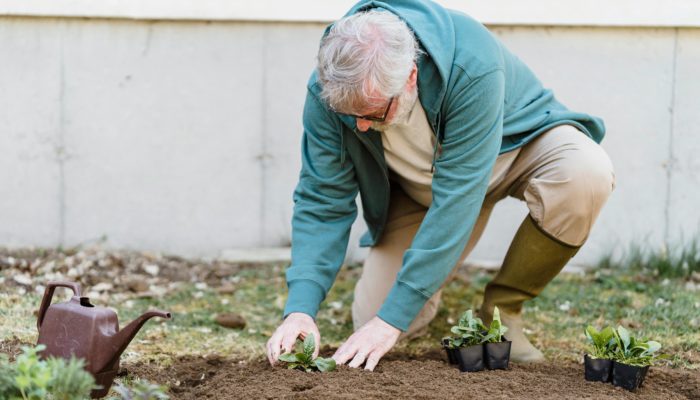Gardening is a beloved pastime for many seniors. It offers physical activity along with feelings of achievement and relaxation. Yet, as the years go by, bodies can become more vulnerable to injuries. This makes it important to take steps that ensure gardening remains safe and enjoyable.
Whether tending a small flower bed or caring for a larger garden, following safety tips helps avoid accidents while promoting well-being. Many senior living communities support gardening because of its great benefits, but remind everyone to approach this hobby carefully.
Choose the Right Tools and Equipment
Choosing the right tools is key to avoiding injuries while gardening. Seniors should look for ergonomic options that help reduce strain and make tasks easier. Tools with cushioned grips, lightweight designs, and extendable handles can cut down on bending and reaching.
Ergonomic pruners, spades, and trowels really boost comfort and safety in the garden. A garden kneeler or seat also helps ease pressure on knees and backs while providing a stable spot for planting or weeding.
It’s important to keep tools in good shape too. Dull or broken equipment can lead to accidents during gardening activities. Regular maintenance along with proper storage makes for a safer environment when tending plants.
Practice Proper Body Mechanics
Using proper body mechanics is key to staying injury-free while gardening. When lifting heavy items like bags of soil or potted plants, the legs should do the work instead of the back. Bending at the knees and keeping a straight back helps prevent strain on the spine.
Taking regular breaks and changing positions can also help avoid putting too much stress on any one part of the body. Starting with lighter tasks makes sense before gradually increasing the workload as strength builds up over time.
Being aware of posture and steering clear of repetitive movements goes a long way in reducing strains and sprains. With good body mechanics, gardening becomes an enjoyable activity without worrying about injuries!
Stay Hydrated and Protect Yourself From the Sun
Gardening often means spending a lot of time outside. This can lead to dehydration and sunburn if precautions aren’t taken. It’s essential for seniors to drink plenty of water before, during, and after gardening sessions.
Wearing the right sun protection is also key. A wide-brimmed hat, sunglasses, and sunscreen with high SPF are great choices. Sunburns and heat exhaustion can happen easily when working in the hot sun for long periods.
It’s best to garden during cooler times of day whenever possible. Lightweight clothing that breathes well helps keep the body cool too. Staying hydrated while protecting against the sun reduces risks related to heat illnesses and supports overall health.
Create a Safe and Accessible Garden Space
Creating a garden that is safe and easy to navigate is important for avoiding injuries. Raised beds or containers can help minimize bending and kneeling, making gardening more comfortable. Walkways should be level and clear of tripping hazards like rocks, roots, or uneven ground.
Adding handrails or support structures offers extra stability while moving around the space. Keeping tools organized in accessible spots helps prevent accidents and reduces strain during use. A thoughtfully designed garden not only boosts safety but also makes the whole experience of gardening much more enjoyable.
Conclusion
Gardening can be a wonderful and satisfying hobby for seniors, especially with the right safety steps in place. Using suitable tools is key. Good body mechanics help, too. Staying hydrated and protected from the sun makes a big difference as well.
Creating a safe garden space adds to the enjoyment while reducing injury risks. A bit of planning and awareness goes far in making gardening both safe and enjoyable!
